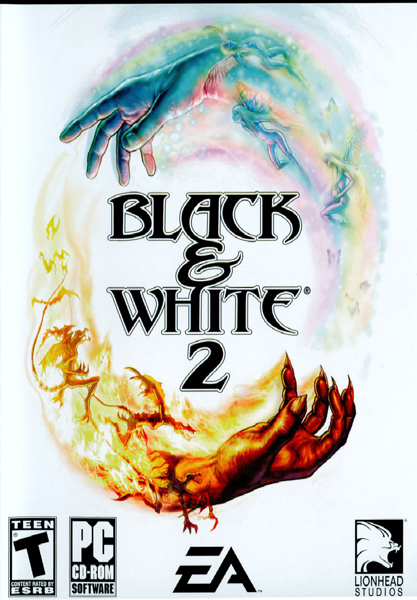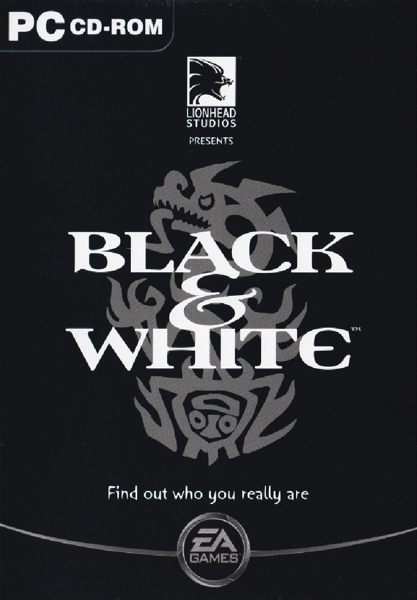For nearly twenty years Lionhead Studios was widely regarded as one of the most creative studios in the country, if not the entire games industry. Responsible for titles such as Black & White and The Movies (essentially YouTube before YouTube, not that the developers realised it at the time) not to mention the beloved Fable franchise, the studio was fit to burst with some of the most creative and talented digital craftspeople in the business.
Co-founded in 1997 by Peter Molyneux, Mark Webley, Tim Rance and Steve Jackson, Lionhead was named after Webley’s pet hamster. The studio was born from a need for a new, creative outlet for Molyneux and Webley as their previous studio - Bullfrog - had recently been acquired by EA. The team were eager and set their sights high, they immediately set to work on Black & White - a hugely ambitious game for its time.
From the very beginning, the vision for Lionhead Studios was that it would consist of an intimate group of devs but would make wildly inventive and ambitious games, and the wildly inventive aspect of Lionhead’s long history of game making never faltered.
Black & White’s technical complexities and lofty ambitions saw it suffer a long development process and many delays. The developers would work long hours and weekends over the years that they continued to make the game, but it was worth it. Not only had they created and released a game the world had never seen before but it was also a huge hit, enjoying critical acclaim. The workforce at Lionhead had grown during development and now encompassed multiple projects: The Movies, Black & White 2, as well as a satellite studio program with a view to finding new projects to bring into the Lionhead family.
It was through that satellite program that Fable came to be under Lionhead’s care. Fable was the creation of another studio, Big Blue Box, that had been founded by brothers Dene and Simon Carter and Ian Lovett, having left Bullfrog. Lionhead soon acquired Big Blue Box and merged some of its team with the Carter brother’s to bring Fable to life. Around the same time, Microsoft was looking for games to launch on its new console - The Xbox - and Fable, coupled with the chance of working with the esteemed Peter Molyneux, swept them off their feet. With Microsoft onboard, Fable development rumbled on.
The touchstones for Fable were folklore, humour and a desire to offer the player an experience that didn’t demand too much from them, free of complexities. After yet more brutal crunch, Fable launched on the Xbox in 2004. It was another huge hit. Microsoft’s involvement ensured focused marketing in America, but hardly any in the UK, leading it to gaining a substantial fanbase in America. The US audience were beguiled by the fairy tale nature of the game, they applauded the progressive ‘love is love’ message and welcomed Fable into their hearts.
Lionhead had worked closely with Xbox during the development of Fable and, in 2006, the studio was acquired by Microsoft. The Movies and Black & White 2 had launched a year prior to much less fanfare than Fable, and as such Lionhead continued to cultivate the Fable franchise. Fable’s success had alerted the game’s liberal views to those of a less progressive nature - resulting in the team and Peter receiving death threats. As development of Fable 2 began, the team were more tenacious than ever to tell alternative stories, to provide representation, to push boundaries, and create an experience the player would never forget. Fable 2 launched in 2008, after yet more crunch. It was another success, gained the studio a BAFTA, became one of the most successful games launched on the Xbox 360 and is often referred to as ‘the best Fable game’.
In the years that followed, Lionhead launched Fable 3, Fable: The Journey and Fable Heroes alongside Microsoft. Finally, in 2013, with the founders no longer involved with the studio, the team started development on a free to play, online, multiplayer to launch on the Xbox One titled Fable Legends. The project was fully endorsed by Microsoft and was Lionhead’s most ambitious, and a task it wasn’t fully prepared for. The result was a stunningly beautiful, sprawling, over-budget, over-deadline, asymmetric masterpiece that was infuriatingly hard to balance and made by the largest Lionhead team to ever exist - around 400 people, within and outside of the Guildford office. In April 2016, after years of development, with Fable Legends in live beta and months from launch, sadly the decision was made to cancel the project and shutter Lionhead Studios forever.
The loss of Lionhead sent a shockwave across the games industry and beyond. Its closure was covered by The Guardian and the BBC alongside the usual video games press. Developers and fans alike sent outpourings of love and heartfelt memories to the dev team following the closure announcement. Whilst there is a loss of collective creativity for fans of the studio, it was the loss of a family for the developers who made Lionhead Studios their 9-5 (ish) home. However, a new story is always waiting to be told and the closure of Lionhead saw the creation of studios such as PixelCount and Flaming Fowl, and also bolstered headcounts for studios such as Two Point Studios (who went on to launch Two Point Hospital in 2018 with many Lions in its ranks).
Though Lionhead’s legacy would be hard to define at this point, I imagine it will be a burning desire to be true to oneself, to revel in the folklore and fairy tale that’s woven into our collective story… and to shout ‘CHICKEN CHASER, DO YOU CHASE CHICKENS?!’ whenever you see a chicken.
This profile was written by Lauran Carter, previously of Lionhead fame and now Head of Comms at Liquid Crimson









